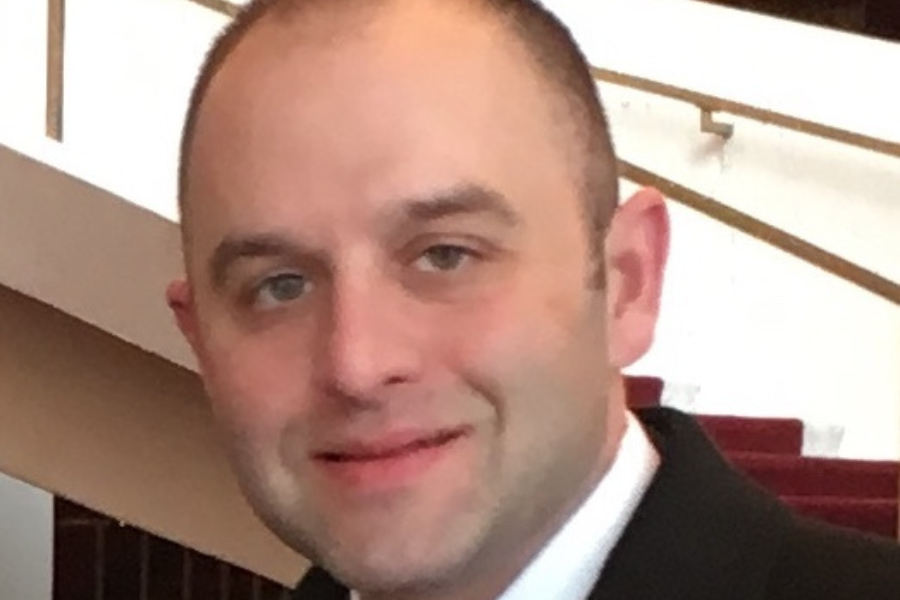Brandon Bernick

"Wisdom grows from knowledge and toil"
College: Arts and Sciences
Degree Program: History
Degree: Doctoral
Why FSU?
I was excited to choose the Department of History to pursue my PhD in War and Society due to my interest in military history and the opportunity to work with my advisor, Dr. G. Kurt Piehler, and the Institute on World War II and the Human Experience. FSU's War and Society Program is one of the few PhD programs of its kind and, as such, the opportunity to study at FSU allowed me to develop professionally in a field I am passionate about. As a retiring military officer, the program aligned with my professional interests and my past teaching experiences at the United States Military Academy at West Point.
Motivation to pursue a graduate degree
I was motivated to pursue a graduate degree due to my love of history and my interest in teaching. As I neared retirement from the military, I decided that teaching history at the college level or for a Professional Military Education program is what I would like to do going forward.
Importance and/or impact of research and work
My current research focuses on strategic studies and intelligence operations during the Second World War and early Cold War periods. For my dissertation, titled “Better Safe Than Sorry: America’s Intelligence Partnership with Reinhard Gehlen, 1945-1956,” I consider the legacy of American intelligence officers’ collaboration with Hitler’s onetime Soviet expert Reinhard Gehlen and how this partnership influenced U.S. National Intelligence Estimates and strategic policies during the early Cold War period. Unfortunately for the Americans, KGB penetration agents had severely compromised the Gehlen operation and were feeding the Americans inaccurate or compromised information. In short, the flawed data coming from the Gehlen operation was consumed by American intelligence officers to produce an inaccurate strategic picture of Soviet capabilities. It is my belief that this work will challenge previously established Cold War narratives that suggest the rise of the U.S. National Security State and the growth of the Military Industrial Complex were necessary for maintaining western security due to inaccurately perceived Soviet capabilities.
Describe an aspect of your military service that is especially memorable or exceptional
My most enjoyable experience in my twenty-three years in the Army was teaching at West Point. I was fortunate to be able to teach African, European, and military history while being surrounded and challenged by many of the history profession's leading scholars. It was here that I learned that I love teaching history and decided to pursue an advanced degree.
Tell us how your military service provided skills and experiences that you were able to apply to your graduate studies.
Broadly speaking, the skills I learned and developed in the military were very applicable to my graduate studies. The ability and desire to pursue an objective, work hard, be organized, remain calm under pressure, analyze problem-sets, conduct professional briefings, work on a team, adhere to deadlines, conduct safety checks, work doggedly until mission completion, and treat people with respect are all core values and traits developed throughout one's military service. As such, like many others, I relied on these values and traits during my studies to reach my goals.
Career aspirations
I plan to pursue a college or government teaching career.
Advice for anyone considering graduate school
Work with your advisor to identify and develop your master's thesis or dissertation topic early on. Following this, tailor your research papers throughout your coursework to address some aspect of your topic. In this way, you will become more familiar with the topic's historiography while also receiving feedback on your ideas throughout your studies. This approach will save you a tremendous amount of time and research when you begin writing your project.
Accomplishments during graduate career
I received the Walbolt Dissertation Fellowship and the Joe Richardson Excellence in Teaching Award. I received honorariums from the University of Pennsylvania for guest lecturing twice on African Security and Military Aid. I conducted an internship at the Camp Gordon Johnston WWII Museum. I published four book reviews, and I presented a paper at the Southeast Regional Graduate Student Conference.
